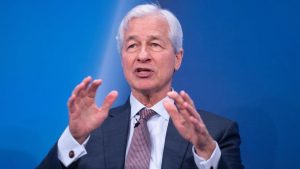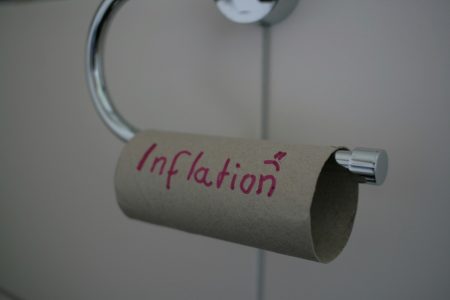© Reuters. FILE PHOTO: Passersby are reflected on an electric stock quotation board outside a brokerage in Tokyo, Japan April 18, 2023. REUTERS/Issei Kato/File Photo
By Naomi Rovnick and Dhara Ranasinghe
LONDON (Reuters) -Global equities nudged higher on Wednesday but were set to end August with their worst month of 2023 so far, given a growing perception that major central banks will need to keep interest rates higher for longer.
MSCI’s broadest index of global shares touched its highest level in over two weeks, following upbeat moves in Asia that continued to benefit from Chinese measures to boost investment in its beaten-down stock market, and weak U.S jobs data on Tuesday.
But a more cautious tone set in as European trade got underway, with equity markets across the region broadly softer while U.S. stock futures nudged lower too.
The first set of August inflation numbers from Spain and some German states pushed euro zone bond yields higher and led money markets to price in a chance of around 60% of a European Central Bank rate hike in September.
“The ECB doesn’t have growth and it’s still got inflation that seems to be ticking back up,” said Patrick Armstrong, chief investment officer at Plurimi Wealth.
“They almost certainly have to hike again this year because today’s inflation data shows there’s still more work to do.”
Futures tracking the and the Nasdaq dipped, suggesting Wall Street shares were set to give up some of the gains made after data on Tuesday showed U.S. job openings dropped to the lowest level in nearly 2-1/2 years in July, signalling inflation pressures caused by a tight labour market and companies were easing.
“The U.S. labour market is moving towards better balance,” SEB Group U.S. economist Elisabet Kopelman said in a note to clients, “increasing prospects for the Fed to achieve a soft landing for the economy.”
Still, MSCI’s global stock gauge has fallen more than 3% in August, thanks to hawkish signals from the Fed’s latest meeting minutes and chair Jerome Powell’s speech on Friday at the Jackson Hole central bankers’ symposium.
INFLATION WATCH
Government bond yields in the euro zone rose broadly after inflation data suggested the ECB may still have to hike rates again.
Germany’s two-year bond yields rose 7 bps to 3.09%.
Spanish inflation rose 2.6% in August, as economists polled by Reuters had expected.
In North Rhine Westphalia, Germany’s most populous state, consumer prices in August rose 0.5% month-on-month and 5.9% year-on-year.
The “flash” euro zone inflation number for August is out on Thursday and economists polled by Reuters expect the headline rate to have moderated to 5.1% from 5.3% in July, still far above the European Central Bank’s (ECB) 2% goal.
Meanwhile, a clearer picture will form this week of whether hawkish Fed signals that shook markets in August were overdone, with U.S. payrolls and personal consumption expenditure reports due.
Market pricing suggests the Fed will hold rates next month. The odds of another pause at the central bank’s November meeting have risen to 51% from 38% earlier this week.
The headline rate of U.S. inflation, at 3.2% for the 12 months to July, is also trending closer to the Fed’s target of around 2% after the world’s most influential central bank hiked rates by 525 basis points (bps) since March 2022.
U.S. Treasury yields edged higher on Wednesday with two-year yields, which moves inversely to the price of the government debt instrument and tracks interest rate expectations, up 3 bps at 4.91%.
Against a basket of currencies, the dollar edged down to 103.46, giving up earlier gains.
The euro was 0.1% firmer at $1.0889.
The yen weakened 0.4% to 146.38 per dollar and remained near levels that led to intervention in the currency market last year by Japanese authorities.
Oil prices rose after industry data showed a large draw in crude inventories in the United States, the world’s biggest fuel consumer, and as a hurricane in the Gulf of Mexico kept investors on edge. futures rose 0.6% to $85.99 a barrel.
Read the full article here









